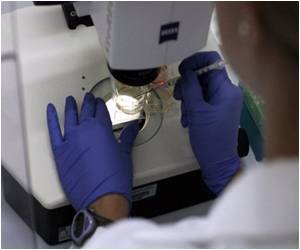Radiation therapy fights cancer in many ways, not only does it force cancer cells to self-destruct, but several studies demonstrate that it also activates the immune system to attack tumor cells.

To address this question, researchers at Thomas Jefferson University tested an experimental cancer vaccine in combination with radiation therapy in mice with colorectal cancer. In research publishing online March 24th in the International Journal of Radiation Oncology, they showed that the vaccine was most effective when tumors were irradiated first and then vaccinated a week later.
"Prior to these experiments, we didn't appreciate the impact that sequencing of these treatments had on their combined ability to generate immune and clinical responses," says Thomas Jefferson University radiation oncologist Matthew Witek M.D., first author of the study. "Remarkably, immune activation and tumor regression only occurred when radiation was given prior to vaccination."
When mice received either treatment alone, the researchers noticed only a modest reduction in tumor size. However, when radiation was given first, the investigators saw a six-fold increase in cancer-fighting immune cells, and impressively, complete remission of the majority of tumors.
Although the work will need to be reproduced in humans to determine if the same holds true for cancer patients, the finding is exciting, says lead researcher Adam Snook, Ph.D., an instructor in the department of Pharmacology and Experimental Therapeutics. "In a patient population that will undergo radiation therapy as standard treatment, these results provide a roadmap to amplifying the effects of immunotherapies like the one we're developing for colon cancer."
Targeted Diagnostics & Therapeutics, Inc, which provided research funding that, in part, supported this work, has a license to commercialize inventions related to this work. The authors report no other conflict of interest.
Advertisement














